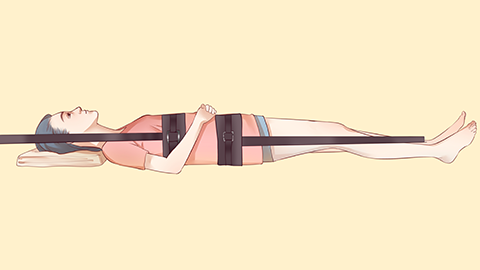Is it better to lie down or sit for lumbar degenerative changes?
In general, whether it is better to lie down or sit for degenerative changes in the lumbar spine depends on the specific condition, as different stages or symptoms result in varying effects of body position on spinal pressure and recovery. If discomfort occurs, it is recommended to seek medical attention promptly and adjust posture under the guidance of a healthcare professional. The detailed analysis is as follows:

During an acute flare-up with significant pain and limited mobility, lying down is more appropriate. Lying flat helps maintain the natural physiological curvature of the lumbar spine, reduces pressure on the intervertebral discs, relieves muscle tension, and alleviates pain. It is recommended to use a mattress of moderate firmness, avoiding ones that are too soft or too hard, which may impair recovery.
If the condition is stable without obvious pain, sitting is acceptable in moderation, but proper posture must be maintained. Keep the upper body upright, ensure the lower back is supported by the chair, and use a lumbar cushion for additional support. Avoid slouching or prolonged sitting; stand up and move around every 30 minutes to prevent continuous pressure on the lumbar spine and worsening of degeneration.
In daily life, avoid maintaining the same posture for extended periods. Whether lying or sitting, change positions regularly. Also, keep the lower back warm to prevent cold exposure from triggering discomfort. Seek timely medical evaluation if symptoms such as increased pain or numbness in the lower limbs occur, to avoid delays in recovery.




